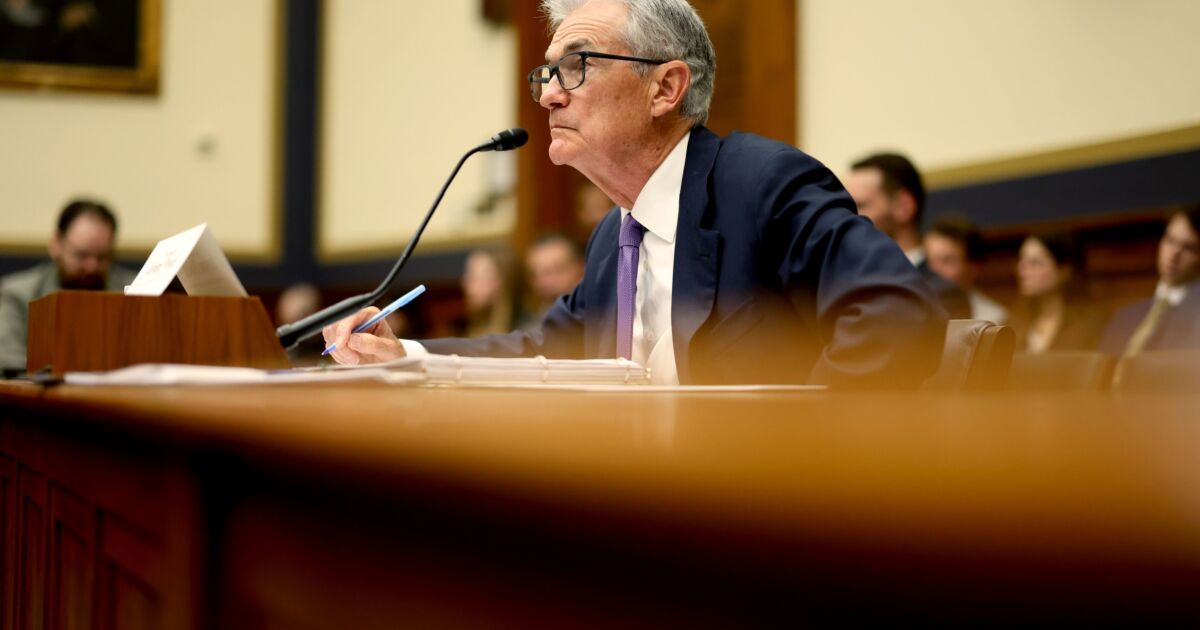
Federal Reserve Chair Jerome Powell favors issuing a
During testimony in front of the Senate Banking Committee on Tuesday, Powell said the Fed has made significant progress in absorbing the various comments it received about the so-called Basel III endgame proposal and is "close" to agreeing with the Federal Deposit Insurance Corp. and the Office of the Comptroller of the Currency on
Powell declined to discuss specific changes to the proposal, but said an additional round of public commentary is "essential," given the degree of modification.
"My view, the strongly held view of the board, is that we do need to put a revised proposal out for comment for some period, and the reason is when there are broad and material changes, that has been our practice," he said. "We don't see a reason to deviate from that practice, it seems to be consistent with past practice and with the Administrative Procedure Act, so that's very much what we think."
Powell said Fed Vice Chair for Supervision Michael Barr, the central bank's top regulatory official, is engaged with his counterparts at the FDIC and the OCC, but the three agencies have yet to make any final decisions.
The OCC declined to comment on Powell's remarks and the FDIC did not immediately respond to a request for comment.
FDIC board member Jonathan McKernan — a Republican and frequent dissenter to the agency's regulatory policies — expressed support for opening the amended proposal to another round of public commentary.
"Count me in agreement with the strongly held view of others that we need to repropose the Endgame proposal with broad and material changes," McKernan posted on X, the social network formerly known as Twitter, on Tuesday afternoon.
Powell said he would like to see the amended capital proposal issued for public comment alongside the findings of the Fed's
Powell said there is "quite a bit of work" to be done before a revised proposal can be issued. He added that it also takes several months for comments to be absorbed and incorporated into the final rule. He noted that the final rule likely would not come together before the end of 2024.
"It's hard to be precise," Powell said. "You write this stuff up, then you put it out for comments, then you read the comments, then you write the final rule. The beginning part of next year is a good guesstimate."
Powell declined to say whether he thought the changes being considered would constitute a "logical outgrowth" from the original proposal. If they were, regulators could legally move to finalize the rule directly, whereas if they were not, a new notice and comment process would be required under the Administrative Procedure Act.
Proponents of the capital reform have argued that the broad set of questions asked by regulators when they issued the proposal last summer gives them ample room to modify the rule and move straight to finalization.
Supporters of the proposal took issue with Powell's comments. Jeremy Kress, a law professor at the University of Michigan and a former Fed attorney, said the Fed chair is effectively "exercising a unilateral veto" on a direct finalization.
In a post on X, Kress also said it was a breach of etiquette for one bank regulator to openly discuss divergent policy views of other agencies.
"Setting aside Powell's personal views on Endgame, it's unusual for a Fed official to expose an interagency rift to Congress without the other agencies there to make their case," Kress wrote.
Following the hearing, Greg Baer, president and CEO of the Bank Policy Institute, said Powell's comments were encouraging, but he noted that the banking trade groups are not ready to stand down just yet.
"We are heartened that the proposal has been rethought and that the public will have a chance to comment on the rethinking; however, the details here are crucial, so obviously we will need to see the scope and details," Baer said in a written statement. "And of course there remains the question of how the Basel proposal fits with the Federal Reserve's stress test, the GSIB surcharge and other regulatory requirements."



